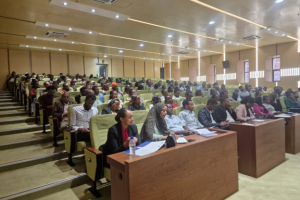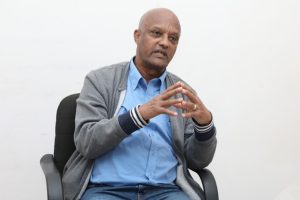
Producing responsible, creative, competent, active participant and productive citizens cannot be effective without the persistent participation of all the concerned bodies. However, higher education institutions have key roles in providing citizens with the knowledge, skills, attitudes and creativity that enable them to lead healthy and fully-fledged life.
In the same way, enabling citizens to make informed decisions that can solve local and global problems and actively contribute to the sustainable and democratic development, societies require frequent follow ups. A focus on quality and innovation will also involve strengthening positive attitudes with intercultural awareness. This requires healthy, wellnourished and motivated learners who receive the necessary support from families and communities. It also demands healthy, safe, and gendersensitive environment as well as adequate resources and facilities.
Likewise, it engrosses content that is reflected in relevant curricula and materials for the acquisition of basic skills, especially in the areas of literacy, numeracy and skills for life, and knowledge in such areas as gender, health, nutrition, HIV and AIDS prevention and peace. As well, it includes processes through which trained teachers use student-centered teaching approaches in well-managed classrooms and schools and skillful assessment to facilitate learning and reduce disparities.
With this, it enquires using mixtures of different teaching methods. Some of these are flyers, brochures, magazines, booklets, workshops, seminars exhibitions, ICT, websites, simulation, historical documents and cultural heritages visit. For these reasons, universities are responsible to shape the youths’ behavior. As students come from different states with various cultural, religious and linguistic backgrounds, all of them have their own behavior and sometimes reflect their own untrained and unwanted behavior. Due to this, universities need to form some platforms where students could learn to leave peacefully in a multicultural institution like Addis Ababa Science and Technology University (AASTU).
According to AASTU Public and International Relation Director, Abebe Detoro, students can reflect their idea to the Student Union, Youth and Woman Club, HIV Club. “They either solve the problem or inform the president. These all associations give the training to the students on how they can improve themselves, how to communicate with others and protect themselves when the students inter into the universities.” He further said: “When the students want to reflect their ideas, we prepare meeting to solve the problem but we don’t have fixed day to have meeting. In relation to disruptive issues, all the students celebrate different days together like Nations Nationalities.
Day and Culture Day respecting one another.” These kinds of programs create opportunities for students to communicate with each other better and help them to ignore differences those cause disagreements and enhance living together in diversity. As well, Addis Ababa University College of Natural Science and Computation Dean, Shibru Temesgen said, “We do have a regular meeting with 27 student representatives and other student unions on any issues those students ask. And we solve problems on the meetings; as a college we advise our students to deal with academic issues but not political or religious issues.” After the reform throughout the country, he added that ‘politics is not over controlling the administrative and decision-making affairs in the higher education institutions.” By the same token, Addis Abeba University College of Social Science, African Development Studies Asst. Prof. Dr. Samuel Tefera said that in the past years, the government did not allow the students to talk about political and other issues, which led to disruptions between the university securities and students. However, now the students are free to discuss with the government but not with universities, therefore, cannot be the cause to disagreement. He also noted, “In this time, the source of disagreement is becoming the social media. It requires a sort frame use. Besides to the system the current generation and students don’t have a culture of reading about history and political issues. They only focus on social media, and it plays great role to create bad or good feelings.”
Herald December 28/2018
BY BETHLEHEM ASFAW




